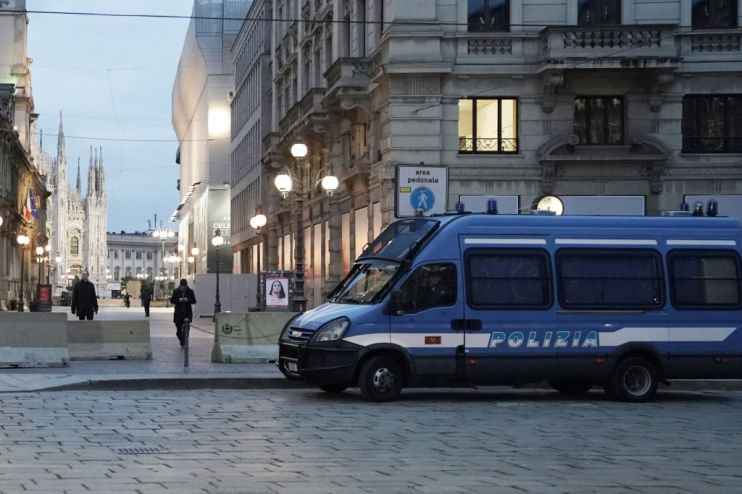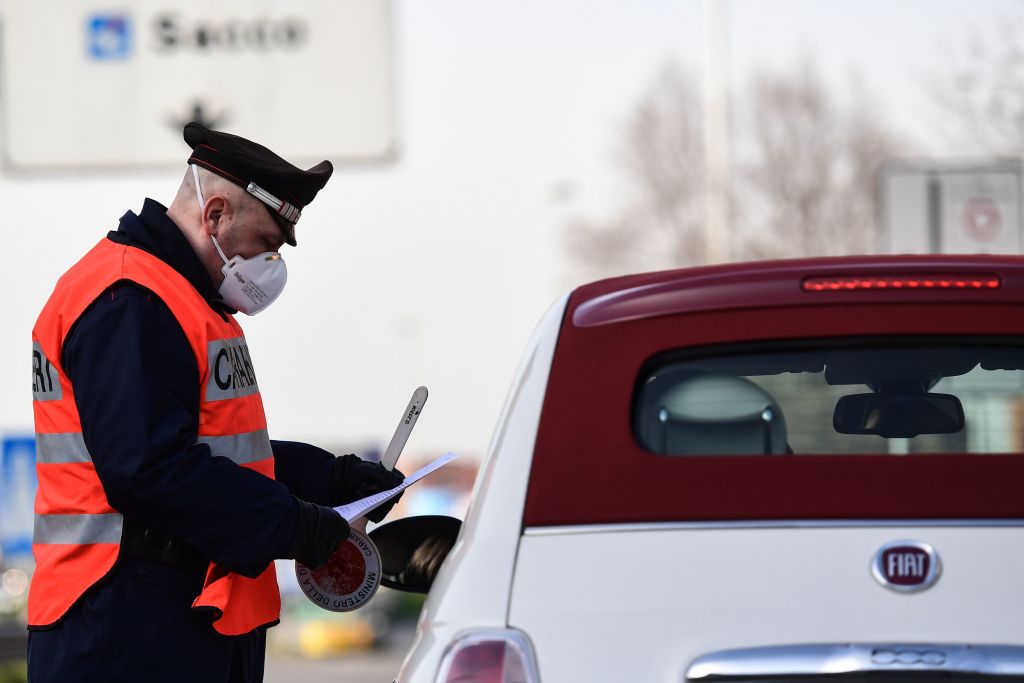Coronavirus: How is business in Italy coping with the crisis?

Milan. City of the Sforzas, La Scala, Internazionale, Giorgio Armani and Dario Fo.
The Lombard capital is also the beating heart of the Italian economy; home to the stock exchange; Italian business success stories such as Unicredit, Versace and Pirelli; and outposts of overseas financial institutions, multinationals, law firms and consultancy giants.
Sadly, Milan is also at the epicentre of Europe’s most virulent coronavirus outbreak which has infected 20,603 people in Italy and killed 1,809. The wider region of Lombardy was the first to be locked down by the Italian government on 8 March, before the draconian quarantine measures were extended to the rest of the country last week.
City A.M. spoke to business leaders in the Italian commercial capital to get a sense of how they and their companies were navigating the twin challenges of coronavirus and lockdown and to ask what they thought the economic impact of the epidemic could be.
Car crash
Claudia Parzani, Western Europe managing partner of Magic Circle law firm Linklaters, says it is too early to gauge the full impact of the coronavirus on businesses in Italy because the country is still in the first phase of its response.
“It’s like when you crash your car, it takes a while to understand what happened, how it happened and what the effects are going to be,” she says.

“Everyone is facing the first crisis, the health crisis. Everyone is trying to secure their own people, their families and the people they love, this is the first level of the crisis,” she says.
Giuseppe Latorre, KPMG Italy’s head of corporate finance, says the impact on Milan has been dramatic.
“Milan is like London or Paris; it’s vibrant, it’s chaotic, it’s full of people running fast because they have meetings. Yesterday, coming back from the office took 10 minutes instead of the usual 40 and I was seeing police cars in the street stopping people and asking where they were going. It’s like being in a B-movie, it’s really, really sad,” he says.
Federico Sutti, Italy managing partner of the world’s largest law firm Dentons, says: “It is quite surreal. I walk to the office and this morning I counted nine people in 2km, normally you would see hundreds, it is quite scary.”
Businesses in Italy have been quick to move to remote working wherever possible to help reduce the spread of the virus.
Parzani says Linklaters’ staff have largely been working from home for about three weeks, with an almost total shift to home working about a week ago.
US bank JP Morgan has shifted more than 90 per cent of its staff in the country to home working on an indefinite basis.
Latorre says the vast majority of KPMG Italy’s staff are now working from home.
Speaking on Thursday, he said: “Yesterday we had more than 4,000 people connected remotely out of a total of 4,500 employees.”
Economic hit
The second stage of business response to the crisis has been to try and work out the longer term financial damage of the pandemic on the economy.
“We are still in the first phase,” Parzani says. “We have just crashed into the wall and we are still understanding how to deal with it. But everyone is aware we are starting to face another crisis, which is the economic one.”
Sutti says: “I am 55 and I have never seen anything like this in my life. From an economic perspective, I remember the 2008-09 crisis, but nothing compared to what I anticipate will be the impact of this situation.”
Latorre says most M&A transactions have ground to a halt.
“Most of the processes in the country have been frozen, literally frozen. We hope to be able to restart the engine and the machine as soon as the peak ends. When that happens is the real question mark at the moment,” he says.
Sutti says: “The government is trying to take some measures to reduce the impact. They have launched a plan to put on the market €25bn (£22bn), but in my opinion that is not enough to address the impact of this crisis.”
Reaction of companies
After trying to keep their staff healthy, the next move businesses are taking is working out how they can survive the crisis financially.

“Our key target is to protect our people, to keep them home, safe and most importantly, to be able as KPMG in Italy to fulfil our financial duty vis-a-vis our employees. This is our goal and mission,” Latorre says.
“Everyone for the time being is trying to limit the damage. Clearly we are considering the impact for the business and we are trying to understand where we can save money,” Sutti says.
Latorre says KPMG Italy’s staff “are working like hell” and doing “crazy days” to fulfil that goal.
“It’s really like being in a war, believe me, and you are with your comrades, it doesn’t matter if they are officers or soldiers you are fighting the same battle,” he says.
Sutti says he expects a wave of restructurings in three-to-six months’ time as companies struggle with liquidity and debt.
“After summer we will see some companies facing problems because of a lack of liquidity and this might open up another round of restructuring or distressed debt,” he says.
Parzani says Linklaters’ clients are seeking advice on succession planning and terminating contracts that may become unworkable because of the crisis.
“Everyone is putting in place succession plans in case the management is impacted by the virus. We are also analysing termination clauses or force majeure clauses in contracts. We have to re-read agreements that were not written in light of the crisis we are facing,” she says.
Latorre says KPMG has put together a team of finance experts to support its restructuring group on an expected flood of work.
More immediately he says the firm’s staff are working with their clients on cash management to help them ride out the liquidity crunch.
“What we are doing with some specific clients is helping them on emergency plans. Most importantly we are trying to help them with cash management today. For every firm in the country it’s key to protect cash in order to be able to survive,” he says.
The Italian experience
The crisis embroiling Italy is unprecedented in modern European history. But with Spain and France both implementing lockdown measures this weekend as virus cases surge, the Italian experience could soon be replicated across the continent.
For the UK too, the terrible human and economic costs the virus has wreaked in Italy offers a sobering glimpse of a possible future.
“Take it seriously in the UK, this is not a joke,” Latorre says.